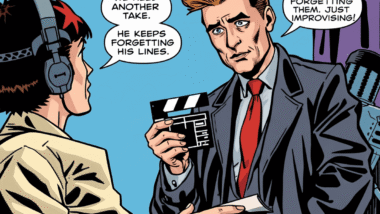Why Solopreneurship Feels Like Freedom—and Pain
Every solopreneur knows the strange paradox.
The very freedom you chased—the ability to work on your terms, to answer only to yourself—sometimes feels eerily similar to exile. Like you’ve been cast outside the tribe. Like the cost of freedom is a silent kind of abandonment.
And here’s the part no one tells you: science shows you’re not imagining it.
Your brain literally processes independence through the same neural circuitry that tracks loneliness and rejection. This is not metaphor. It’s biology. Once you understand it, you’ll see why solopreneurship is both brutal and liberating—and how to use this hidden wiring as fuel instead of friction.

The Secret Pain of Independence
Let’s start with the hard science.
The anterior cingulate cortex (ACC)—a small strip of neural tissue buried deep in your brain—is the region most associated with social pain. When you’re excluded from a group, when someone ignores you, when your tribe doesn’t recognize you—it’s the ACC that lights up.
But here’s where it gets wild. Studies show this same region activates in solitude-driven pursuits. When you step into entrepreneurial isolation—working alone, carrying the burden yourself—the ACC fires as though you’ve been cut off from others. Your brain, in essence, can’t fully distinguish between voluntary independence and involuntary exclusion. Both register as pain.
Which means: freedom and rejection share a biological root.
This is why the solopreneur’s path often swings between exhilaration and ache. You’re not just managing finances and strategy. You’re managing the invisible machinery of your own neurology.
Why Dopamine Turns Exile Into Firepower
If it ended there, solopreneurship might feel unbearable. But nature, in its genius, gives you a secret weapon.
Dopamine.
The brain’s reward chemical kicks in the moment autonomy is exercised. Each decision you make outside the group, each win that’s yours alone, gets tagged with bursts of dopamine. Small victories suddenly feel electric because the brain compensates for isolation by chemically amplifying independence.
This mechanism flips the script.
What could simply feel like pain is transmuted into exhilaration. What could feel like rejection is reframed as sovereignty. Your nervous system itself reframes exile into firepower, teaching you to fall in love with the very solitude that once cut you.
And yet, dopamine is not a gift without conditions. It tempts you into overvaluing autonomy for its own sake, even at the cost of connection. Which is why the solopreneur must learn to dance with both absence and reward, knowing that biology is amplifying each side.
Loneliness or Self-Sufficiency? The Hidden Reframe
Here’s the psychological linchpin.
What many entrepreneurs label as “independence” is often the nervous system running a quiet survival script. The ACC fires loneliness signals, but instead of letting the conscious mind dissolve into despair, the system rebrands that output as self-sufficiency.
You’re not just lonely. You feel independent. You’re not just isolated. You feel in control.
This reframing doesn’t happen because of your motivational speeches or productivity hacks. It happens because the nervous system refuses to let pain signals run unopposed. It generates forward-seeking narratives to preserve momentum.
And if you’re reading this, here’s the deeper point: that sensation of fierce autonomy you’ve taken pride in? It has always been one part biological defense mechanism, one part genuine agency. Recognizing this keeps you from being a slave to it.
The Razor’s Edge: Suffering or Transcendence
So what does all this mean for identity?
It means solopreneurship is not simply “being your own boss.” It’s not merely an escape from the constraints of systems or organizations. It is a neurological and existential tightrope act between exile and transcendence.
Because when you walk alone, you are always a step away from either collapse or creation. On one side, isolation shatters the nervous system. On the other, solitude carves the conditions for greatness.
This truth reframes solopreneurship itself: not everyone who runs a solo business is a solopreneur in this deeper sense. Only those who turn isolation into alchemy, who harness the exile into clarity and conviction, are truly playing the role.
And that changes everything about how you view your identity today.
The Cost of Ignoring the Science
Let’s be brutally clear: pretending this wiring doesn’t matter costs more than lost time.
When you ignore how your brain alchemizes solitude and rejection, two things happen:
- You mistake your biology’s survival strategies for “just who you are.”
- You misdiagnose the swings between drive and despair as personal weakness, when in reality, they are predictable neurological processes.
Both mistakes erode your momentum. Both trap you in cycles that bleed businesses dry before they even hit stride.
Recognizing this circuitry cuts the cycle. It arms you with clarity: this is hardwired, not personal. Which means it’s a system you can master instead of a fate you must endure.
How to Turn Exile Into Fuel
So how do you weaponize this understanding? Start here:
- Notice the ACC’s trick. When you feel a wave of rejection or “not being enough,” pause. Ask if this is truly social pain—or simply the cost of solitude reframed by your brain.
- Leverage dopamine deliberately. Celebrate small independent decisions, but anchor them to long-term goals. Otherwise, you’ll get hooked on autonomy hits instead of genuine growth.
- Reframe consciously. Instead of passively letting your nervous system rename loneliness as independence, do it with awareness. Choose what to call your solitude. See it as preparation, not deprivation.
- Balance solitude with intentional connection. A solopreneur is powerful, yes, but not invulnerable. The same brain that thrives in autonomy also craves belonging. Satisfy both instead of pretending one will erase the other.
These moves shift you from being a passenger of evolution into a driver of it.
The Hidden Invitation of Solopreneurship
At its core, the science reveals something profound: solopreneurship is not an escape from the world—it is engagement with it at the rawest biological and philosophical levels.
To walk alone in business is to inherit the burden of exile and the torch of freedom, bound up in the same circuitry. To choose this path is to choose transformation, not simply transaction.
That’s why this isn’t just about business strategy or productivity hacks. It’s about identity, about how you wrestle with the very architecture of your brain.
The solopreneur’s brain is wired for exile. But exile, in the hands of someone willing to understand and master it, becomes the sharpest tool for carving out extraordinary freedom.
The Step You Must Take Next
Truth without action decays. So take the next step now:
Audit your relationship with solitude. Look at where it drains you and where it fuels you. Identify the moments when what feels like rejection might, in fact, be your brain disguising mobility as pain. Anchor your independence to a larger mission so the dopamine bursts serve you instead of scatter you.
Because every day you misunderstand your own wiring, you bleed potential. And every day you master it, you live closer to the alchemy where exile turns into unstoppable freedom.
The entrepreneurs who thrive are not the ones who escape the pain—but the ones who transmute it. That choice is yours, starting now.


